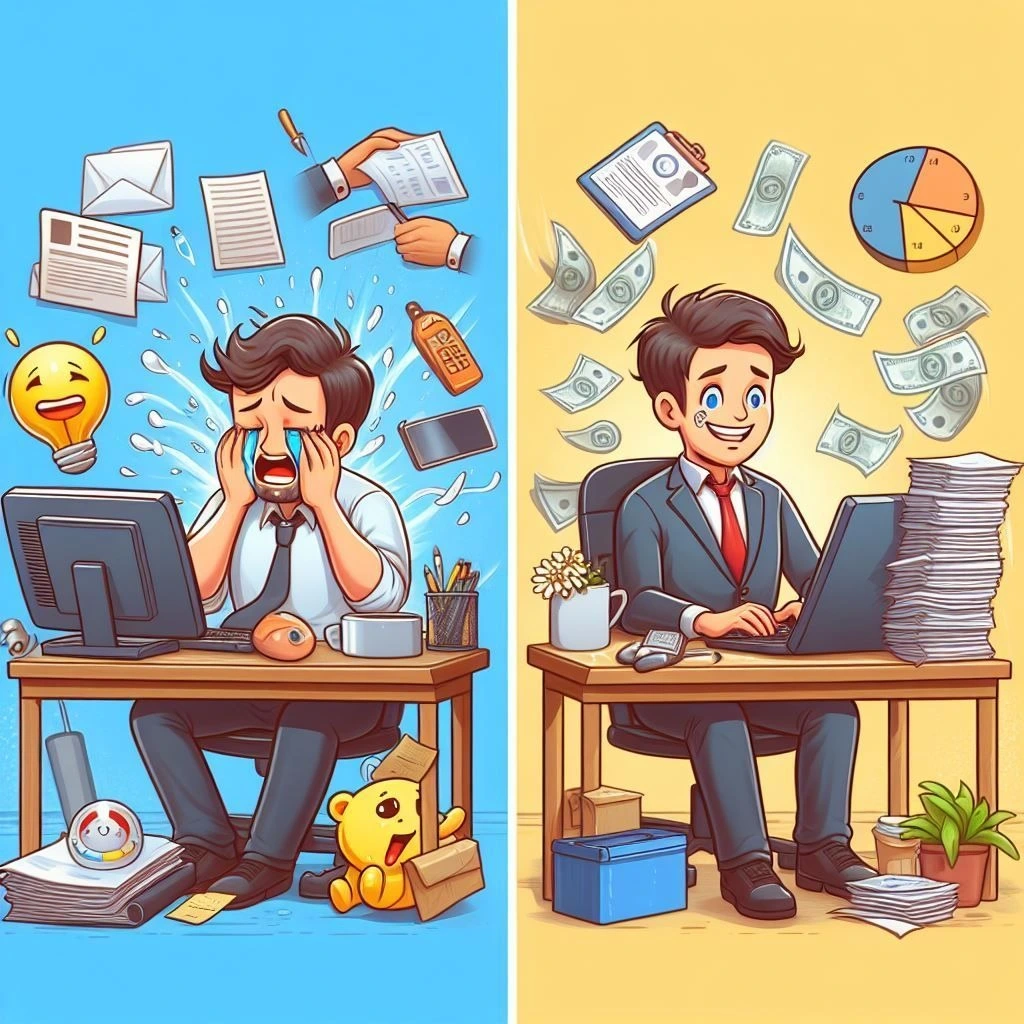Every travel company knows: one delayed confirmation, one wrong date, one unanswered email — and a sale is gone.
Yet most businesses keep losing their most valuable resource — time.
These losses are invisible.
Every small delay, every tiny error, every repeated task quietly piles up — eventually turning into thousands of lost hours every year.
Let’s figure out how, where, and why time slips away — and what can be done to stop it.

1. The Invisible Problem of Tourism: Scattered Data
Tourism is a multi-layered business: hotels, flights, transfers, visas, insurance, group management.
Each element comes from a different source.
When this information isn’t unified in one system, chaos appears.
Sales work in Excel,
operations — via email,
accounting — in its own software.
The result: everyone “works,” but no one works with the same data.
Duplicate bookings, forgotten reservations, wrong dates — all of these mean lost time and lost trust.
That’s how inefficiency begins: no one notices the slowdown, but the entire team moves slower every day.
2. Manual Operations: The Trap of Mechanical Work in the Digital Era
Many travel companies are still stuck in the age of Excel and attachments.
A manager manually copies hotel details, edits prices, adds images, and creates a Word document for a proposal.
That’s at least 25–30 minutes per request.
Ten such proposals a day — that’s five hours.
A hundred hours a month.
Over 1,200 hours a year spent on repetitive manual work.
This is time that could be invested in new clients, expanding partnerships, or launching new destinations.
Manual work is also the main source of errors:
one extra zero, one wrong date — and the offer loses value.
In tourism, one mistake can cost an entire deal.

3. Repetitive Tasks: The Endless Cycle of the Same Documents
Every day, dozens of proposals are created — but most of them are duplicates.
Only names, dates, and prices change.
This kills employee creativity and motivation.
Worse, it creates the illusion of productivity: people work harder, but not smarter.
Modern automation systems generate proposals in seconds:
enter the client’s data — the system finds matching hotels, prices, and tours,
creates a visual offer, and prepares it for sending.
Now you can make 50 proposals instead of 10 — not because you work harder, but because your tools are smarter.
4. Communication Problems: Information Lost in the Labyrinth of Emails
Teamwork is the heart of tourism.
Sales, operations, accounting, and marketing must stay in sync.
But in many companies, communication still happens through emails and chat threads.
Information is passed around, but no one knows who has the latest version.
A booking changes — operations still work with the old details.
A client calls — and no one knows the current status.
These “little things” are expensive: canceled bookings, lost clients, damaged reputation.
Travacco unites all these processes in one system.
All departments work within a single interface,
updates appear instantly,
and the question “who has the latest version?” becomes history.
5. Lack of Analytics: Decisions Should Be Based on Data, Not Intuition
Travel companies collect a lot of information but rarely use it effectively.
Sales are recorded, bookings are archived — but analysis never happens.
Management asks:
- Which destinations bring the most profit?
- How efficient is each manager?
- When do clients book the most?
Answers are missing or come too late.
Without analytics, management is like moving in the dark.
Travacco fills this gap:
the system automatically gathers metrics, analyzes trends,
and provides real-time reports every day.
6. Customer Satisfaction: A Timely Response Builds Trust
In tourism, quality starts with speed.
If a client doesn’t get a reply within 1–2 hours, they’re probably already talking to your competitor.
The reasons for delays are clear:
disorganized data,
manual work,
slow information transfer between departments.

Travacco solves all of this at once:
client data is centralized, offers are generated automatically,
and response time is reduced to minutes.
Fast replies signal reliability — and reliable companies earn repeat clients.
7. The Human Factor: Fatigue and Lost Motivation
Tourism is stress, repetition, and constant pressure.
Employees burn out from manual work, overflowing inboxes, and disorganized systems.
Travacco eases that pressure:
automation balances workloads,
and staff can focus on creative and strategic goals instead of routine tasks.
This doesn’t just boost productivity — it reshapes company culture.
8. Digitalization: No Longer a Choice, But a Survival Strategy
The world has changed.
Clients book online, make decisions instantly.
If your company still runs on email and spreadsheets — you’re already behind.
Digital transformation isn’t a trend — it’s a condition for survival.
Travacco makes this transition simple and safe:
it moves your processes to the cloud, keeps data secure,
and allows your entire team to work in sync from anywhere.
That means flexibility, transparency, and control.

9. Travacco: The Engine of Time for Travel Companies
The mission of Travacco is simple:
to help travel businesses reclaim the time they’ve lost.
It’s not just software — it’s an ecosystem.
Requests, orders, clients, partners, finances, and reports all come together in one system.
Every process becomes smooth, transparent, and manageable.
- Automatic creation of proposals and bookings
- A unified database with no duplication
- One shared workspace for the entire team
- Secure customer data and personalized service
- Real-time analytics and reporting
It’s not just efficiency — it’s a new level of professionalism.
Clients can feel when a company operates like a system.
10. Conclusion: Whoever Manages Time, Manages the Market
In tourism, success isn’t about the lowest price.
It’s about who responds faster, works more precisely, and makes fewer mistakes.
Losing time doesn’t just mean stress — it means losing competitiveness.
Travacco helps companies change that reality:
move from chaos to clarity, from manual work to automation,
from guessing — to data-driven decisions.
The key is learning to turn time into your advantage.
Final Thought
The secret of success in tourism is simple:
it’s not about how much you work — it’s about how wisely you use your time.
Those who waste time lose clients.
Those who master time — win the future.
Travacco is the symbol of this transformation.
It wasn’t built to waste your time — it was built to help you profit from it.
Because success in modern tourism is no longer the art of selling trips —
it’s the art of managing time.
